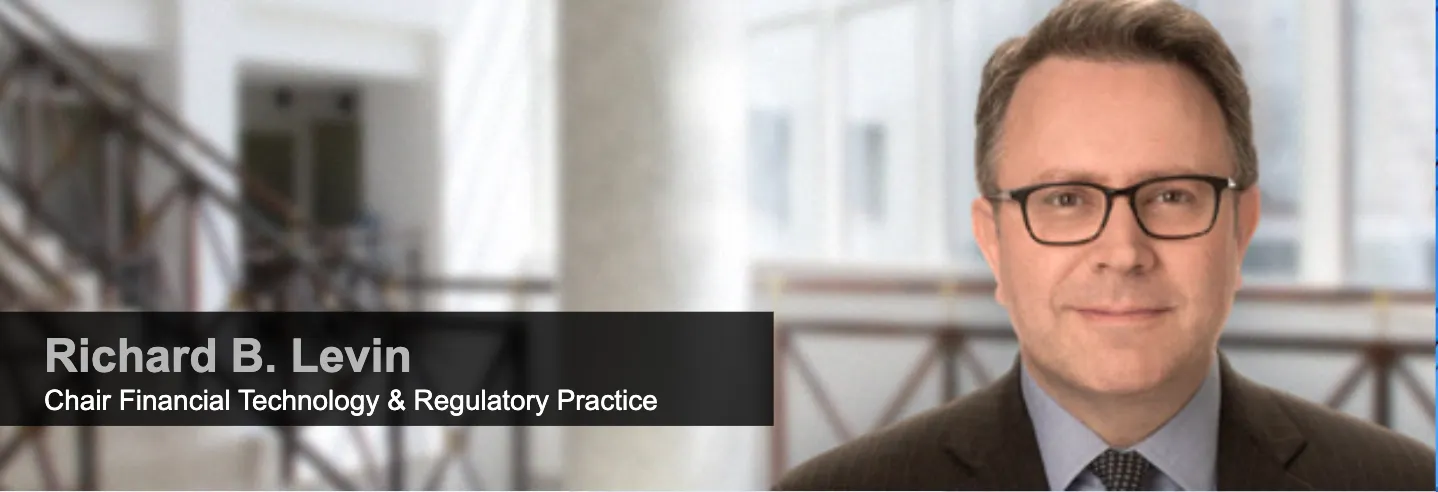In Brief
- Crypto attorney Richard Levin has long believed that ICO-related class action suits were the "new frontier."
- The dozen suits filed in federal court Friday were likely the result of statute of limitations concerns.
Richard Levin was right. For years, the fintech attorney and former Wall Street compliance officer has been predicting that class-action suits would be brought against companies and people involved in unregulated initial coin offerings, or ICOs. “We have only likely begun to see the beginning of class-action lawsuits filed relating to blockchain-related companies or companies that participated in ICOs,” he co-wrote in a March 2018 blog post. “We believe it is highly likely other issuers of tokens will face class-action lawsuits.”
On Friday, Levin’s prediction came true—in spades: A New York law firm filed class-action lawsuits against nearly a dozen top crypto companies, including Binance, Bitmex, Civic, and Tron. The suits accuse the companies of issuing or trading unregistered securities in the form of digital tokens. But why did so many suits all hit at one time?

The statute of limitations on financial fraud
Levin believes the recent actions were driven mainly by two things—concern over the statute of limitations on the cases and recent regulatory settlements involving ICOs that were deemed sales of unregistered securities.
“You are looking at the statute of limitations. Oftentimes in any action, one question is, when do we have to file by,” Levin told Decrypt on Sunday. “If you look at the amount of capital that was raised in the sale of the digital assets and the number of people that bought them, it creates basically a large pool of potential claimants, which looks similar to a class action.”
(Update: An earlier version of this story stated that there is a two-year statute of limitations on fraud. But Levin clarified with us that “there are different statutes of limitations for different types of securities claims. The SOL is two years for claims of fraud and three years for sales of unregistered securities without an exemption from registration under the Securities Act of 1933.”)
In terms of the recent regulatory settlement, specifically, Levin is referring to Block.one, one of the companies targeted in the recent lawsuits. In September, the Cayman Islands-based blockchain firm paid a $24 million penalty to the Securities and Exchange Commission for conducting an unregistered ICO that raised the equivalent of several billion dollars from mid-2017 to mid-2018.
“While not binding on the court in the class-action, the plaintiffs will argue Block.one sold securities in violation of US securities laws," said Levin.
Other ICO class-action suits
The lawsuits filed on Friday were hardly the first class-action cases brought against crypto companies. Class-action suits were filed against companies almost as soon as ICOs became a thing in 2017. Tezos, Bitconnect, Centra Tech, and others have been sued. But this recent spate of class-action suits could signal a new open season on many more of the players who got rich during the 2017-18 ICO boom. There's blood in the water.
Levin said he’s been reading instances where some people think Friday’s lawsuits will be dismissed quickly. He doesn’t agree. He believes the lawsuits could drag on for years and drain some of these companies of most of the money they raised in their token offerings. “I think there will be a substantial period of litigation,” he said.
Roche Cyrulnik Freedman, a 15-attorney law firm with substantial experience in crypto, filed the suits in a federal district court in New York against 11 companies and 42 defendants. The recently launched “litigation boutique” has offices in New York and Miami and is the same firm that a New York federal judge appointed lead counsel in a bitcoin market manipulation case against Bitfinex and Tether. In the unlikely event that triple damages are awarded, that suit is worth $1.4 trillion.
Levin was not surprised by the barrage of civil suits the firm filed. “Our law firm warned people for several years,” he said. “I’ve been doing blockchain for nine years and I warned people probably going back nine years that most digital assets being issued were going to be deemed securities by the SEC.”
The new frontier of crypto class-action suits
In his blog post two years ago, Levin said that class-action suits were the “new frontier” in the cryptocurrency space. That was about the time regulators were starting to crack down on ICOs, which startups were using to raise hundreds of millions—and in some cases, even billions of dollars in funding.
Levin believes the chance of any of the recent class-action suits getting dismissed is slim. “Dismissal of a case is an extraordinary remedy,” he said. “I don’t believe the court will dismiss the cases, and I also do not believe the courts are going to grant motions for a summary judgment either on behalf of the plaintiffs or the defendants.” Instead, he sees some, if not all, of the cases going to trial before a judge or a jury.
That’s not to say issues won’t arise along the way. For one, the dozens of defendants named in the lawsuits are spread out across 16 different countries.
“The location of the company that issued the digital asset will be an issue of dispute,” he said. Also at issue is whether the party sold the digital asset to US citizens and whether the federal court in the US is the proper location for resolution, he said.
But ultimately, the lawsuits could take a heavy toll on the companies being sued. “I suspect that issuers of digital assets that raised hundreds of millions or even billions of dollars will be looking at spending a fair amount of their funds on defending these actions,” said Levin.
He also believes the lawsuits will “cast a cloud” over all of the digital assets named in the suits going forward. Anyone trading those tokens is now on notice that at least some purchasers believe that they were sold illegal securities—and they were willing to sue for damages.

